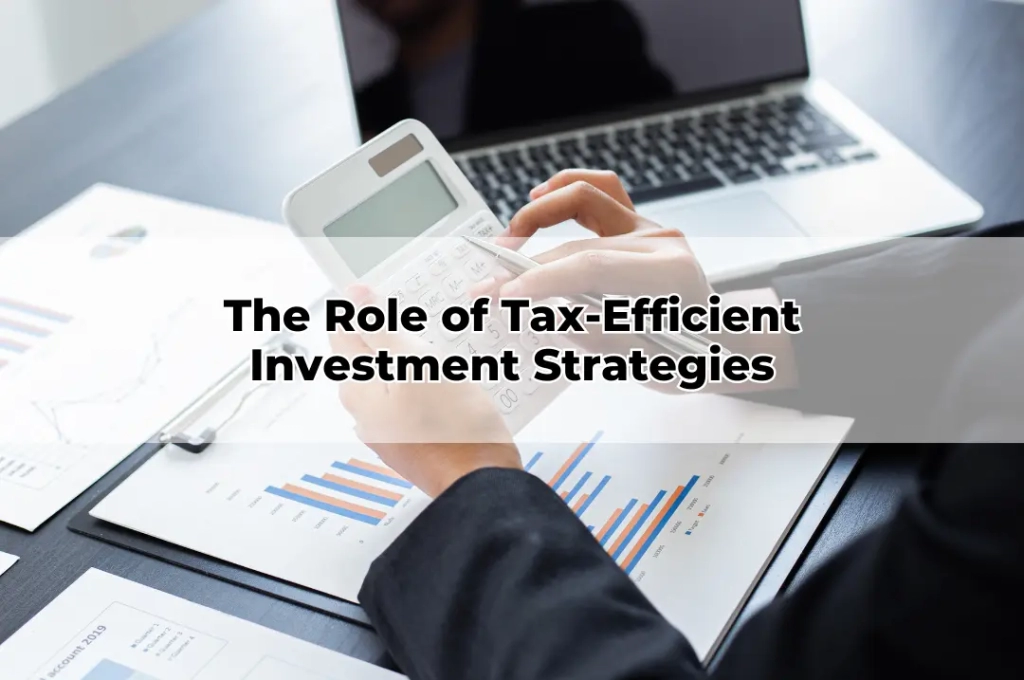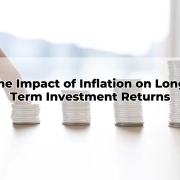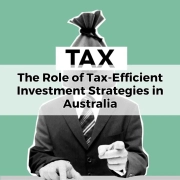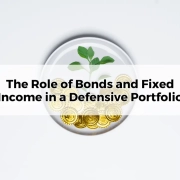The Role of Tax-Efficient Investment Strategies
Table of Contents
ToggleTax-efficient investing is the practice of structuring investments to minimise tax liabilities and maximise after-tax returns. In Australia, where the tax system is intricate and multi-layered, investors must navigate capital gains tax (CGT), dividend imputation, and superannuation regulations. A well-structured investment approach considers tax implications at every stage of wealth accumulation, ensuring optimal financial outcomes.
The Impact of Tax on Investment Returns
Tax can significantly erode investment returns if not managed effectively. Investors face income tax on dividends, CGT on asset sales, and potential additional levies. The compounding effect of tax inefficiencies over time can diminish wealth accumulation. Understanding how different asset classes and investment vehicles are taxed allows for informed decision-making and improved portfolio performance.
Superannuation: The Tax-Advantaged Investment Vehicle
Superannuation remains one of the most tax-effective investment structures in Australia. With concessional tax rates on contributions and earnings, superannuation provides a compelling vehicle for long-term wealth growth. Tax-free withdrawals in retirement further enhance its attractiveness, making it a cornerstone of effective financial planning.
The Power of Dividend Imputation
Australia’s dividend imputation system allows investors to benefit from franking credits, reducing the tax burden on dividends. Fully franked dividends provide a tax offset, making Australian shares attractive for income-focused investors. Understanding how to leverage dividend imputation can significantly improve after-tax returns and overall portfolio efficiency.
Capital Gains Tax: Strategies for Minimisation
Capital gains tax applies when selling assets at a profit, potentially reducing net returns. Strategies such as holding investments for over 12 months to access the CGT discount, offsetting gains with capital losses, and timing disposals strategically can help minimise tax liabilities. Effective CGT management is essential for long-term wealth preservation.
Tax-Efficient Asset Allocation
Allocating assets across different investment structures can enhance tax efficiency. Holding growth assets in tax-advantaged accounts like superannuation and keeping income-generating investments in lower-tax structures can improve overall portfolio tax efficiency. Tailored asset allocation strategies ensure that investors achieve their financial goals with minimal tax impact.
The Role of Investment Bonds in Tax Planning
Investment bonds provide a tax-effective alternative for investors seeking long-term wealth accumulation. With a 10-year tax-free maturity period and tax-paid investment earnings, they offer a compelling solution for high-income earners looking to optimise their tax position. Understanding the nuances of investment bonds ensures strategic wealth management.
Negative Gearing: Tax Benefits and Risks
Negative gearing allows investors to offset investment losses against taxable income, reducing overall tax liabilities. While popular among property investors, it carries inherent risks, including cash flow constraints and reliance on capital growth. Evaluating the tax benefits against potential downsides ensures prudent investment decisions.
Trust Structures for Tax Efficiency
Trust structures, such as discretionary or family trusts, provide tax planning opportunities by distributing income to beneficiaries in lower tax brackets. Effective use of trusts can enhance tax efficiency, protect assets, and facilitate intergenerational wealth transfer. However, regulatory compliance and proper structuring are essential to avoid unintended tax consequences.
Tax-Effective Retirement Planning
Retirement financial advice should incorporate tax-efficient withdrawal strategies to maximise retirement income. Structuring withdrawals from superannuation, account-based pensions, and other investments in a tax-effective manner ensures a sustainable and tax-minimised retirement income stream. Proper planning prevents unnecessary tax erosion of retirement savings.
The Importance of Regular Tax Planning Reviews
Tax laws and regulations evolve, necessitating regular reviews of investment strategies. Periodic assessments ensure that investment portfolios remain aligned with current tax legislation and financial objectives. Proactive tax planning minimises liabilities and enhances wealth accumulation over the long term.
Seeking Professional Financial Advice
Given the complexity of Australia’s tax system, engaging a Toowoomba Financial Adviser ensures tailored strategies that align with individual financial goals. Professional guidance helps navigate tax legislation, optimise investment structures, and enhance overall financial security. Partnering with an experienced adviser streamlines tax-efficient investment decision-making and maximises wealth potential.









